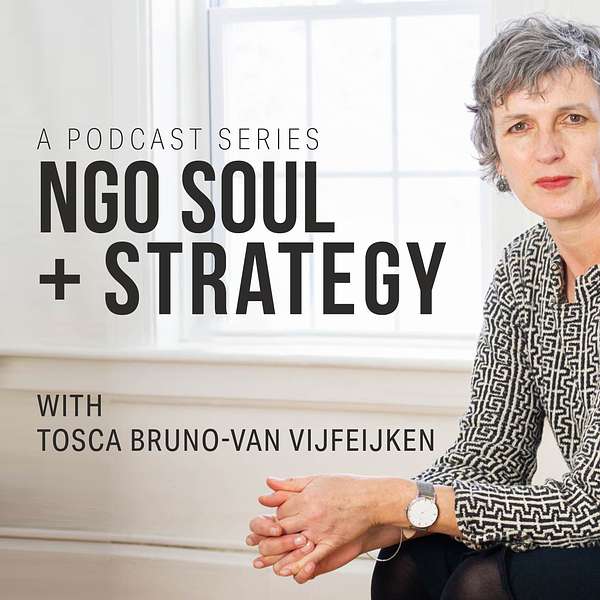
NGO Soul + Strategy
NGO Soul + Strategy
088. When You Have to Wind Down Your Nonprofit: How to do It Well, with Amy Miller-Taylor
Summary
What does it take to lead an organization through a responsible and strategic closure? In this episode, I speak with Amy Miller-Taylor, former Executive Director of Global Integrity, about her experience navigating the complex decision to wind down an organization while ensuring its legacy, people, and resources were safeguarded. We explore the financial and strategic challenges that led to this decision, the leadership lessons Amy learned, and how organizations can approach closure as an intentional and thoughtful process rather than a last resort.
Amy's Bio
- Former Executive Director of Global Integrity, an organization focused on open governance and anti-corruption.
- Deputy Chief of Party, Powered by the People, PartnersGlobal
- Advocate for responsible leadership transitions and sustainable organizational change.
- Experienced in global development, governance, and nonprofit management.
We Discuss:
- Facing financial realities early on: How Amy quickly recognized the urgent need for a new business model upon stepping into leadership.
- The role of transparency in leadership: Why erring on the side of over-communication helped maintain trust and morale among staff.
- Navigating financial and grant structures: The complexities of nonprofit funding and how the fine print of grants can influence an organization’s survival.
- Seeking external counsel: How a small group of peer advisors helped Amy evaluate alternative business models and ensure the decision to close was strategic, not reactive.
- Ensuring an ethical and responsible wind-down: The steps Global Integrity took to transition programs, preserve resources, and document key learnings for the sector.
- Supporting staff during closure: The importance of providing job placement support and ensuring employees had access to career transition resources.
- The administrative side of closure: Legal, financial, and operational considerations when dissolving a nonprofit.
- Shifting power in practice: How Global Integrity’s approach of handing over program leadership to local partners in prior years eased the transition.
- The emotional weight of closing an organization: Amy’s reflections on the psychological toll and how she found meaning in the process.
- Why ending well allows for new beginnings: The importance of reframing closure as part of an organization’s legacy rather than a failure.
Quotes:
- “Closing well was more important than a last-ditch effort to make it work.”
- “Our efforts toward a responsible wind-down, shifting power, and advancing Global Integrity’s mission could have been more impactful if we had embraced the idea of a strategic ending earlier.”
Resources:
Let’s stay connected
You can also watch this episode on YouTube and subscribe to be the first to know when new episodes or other thought pieces are released.
Have a challenge or opportunity in your nonprofit or philanthropic organization that you'd like to explore? Feel free to reach out to Tosca directly at tosca(at)5oaksconsulting(dot)org.
And if you’d like more insights on nonprofit leadership, organizational change, and culture, you can follow Tosca on LinkedIn.